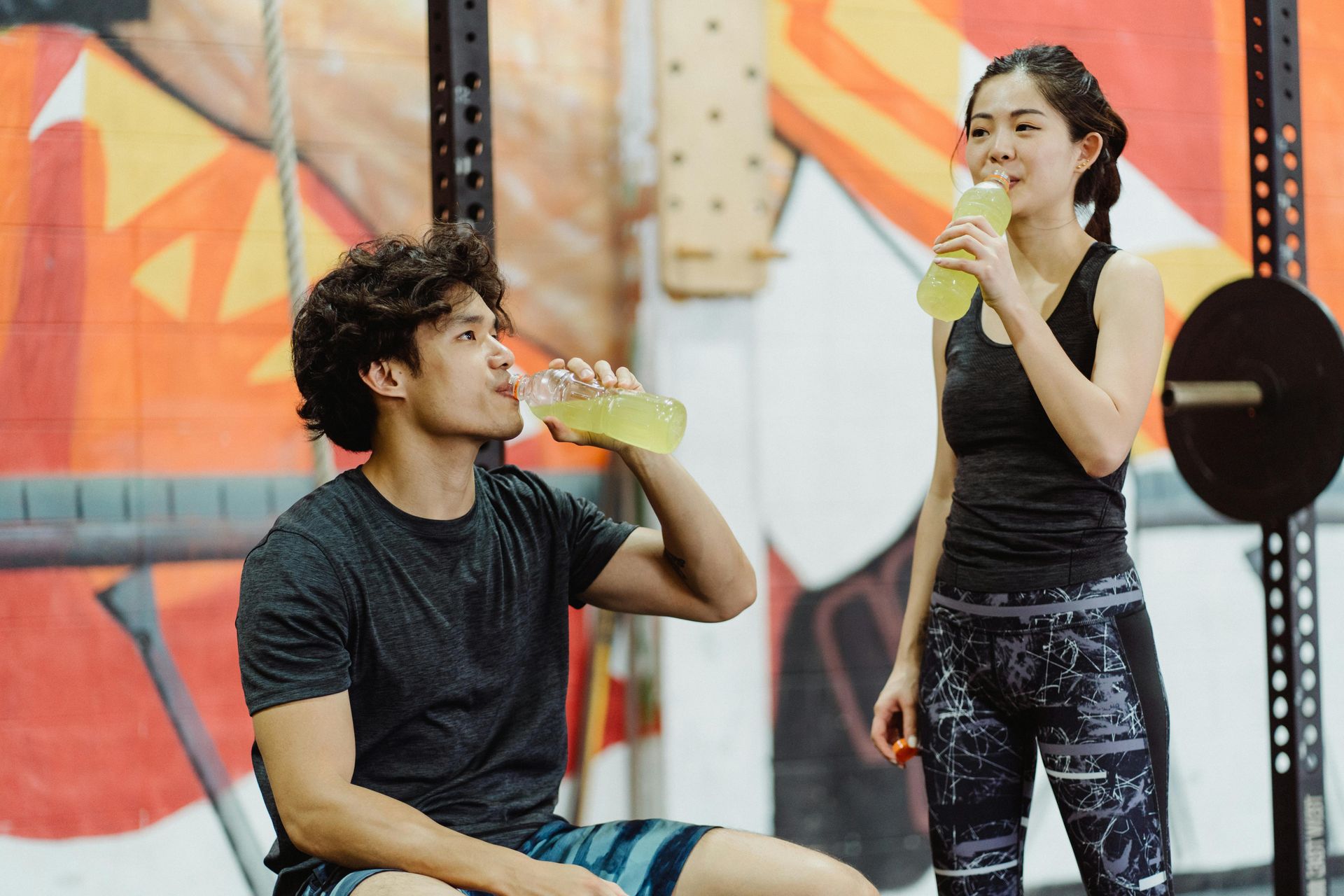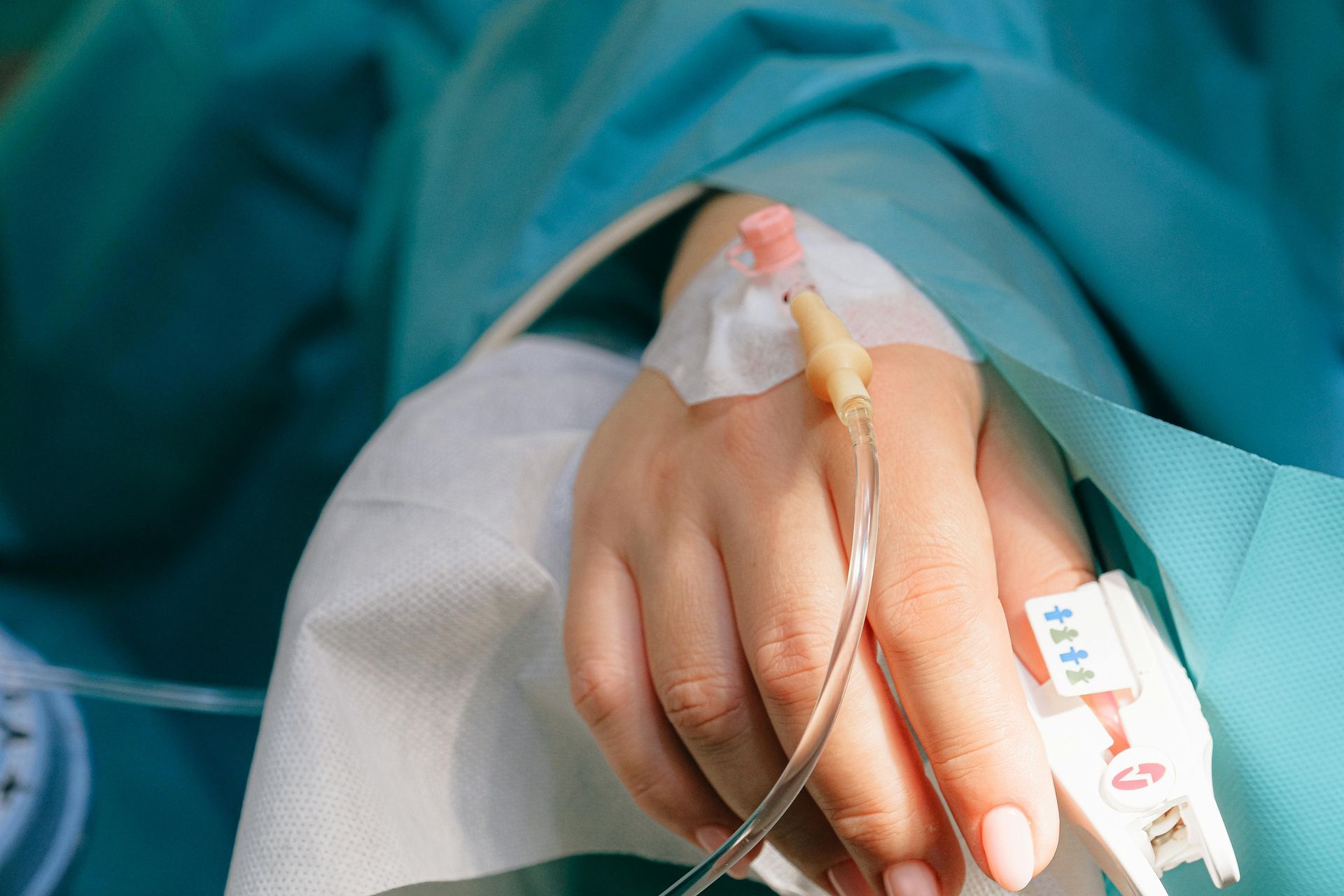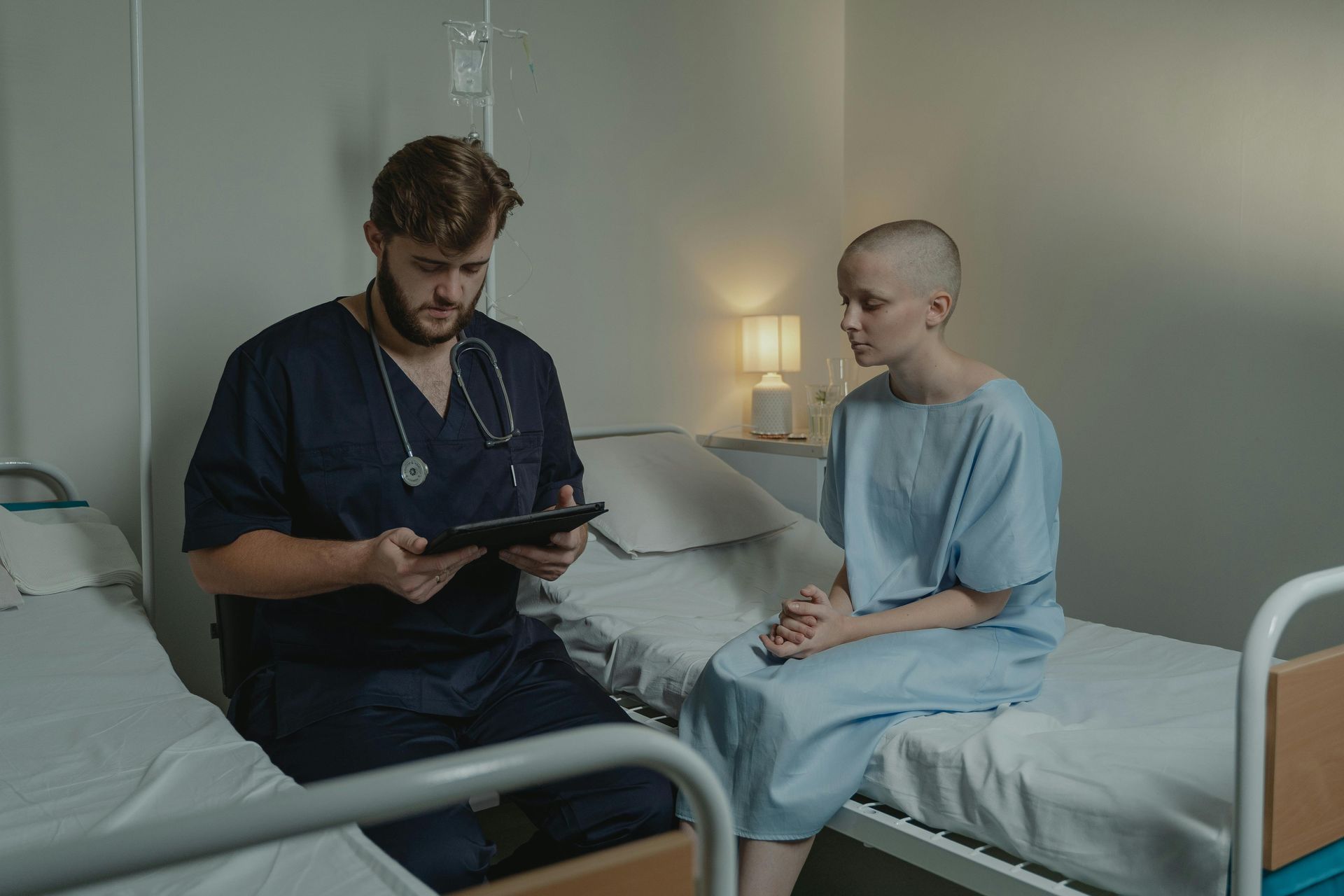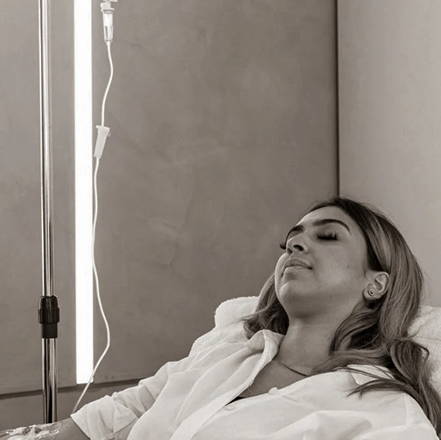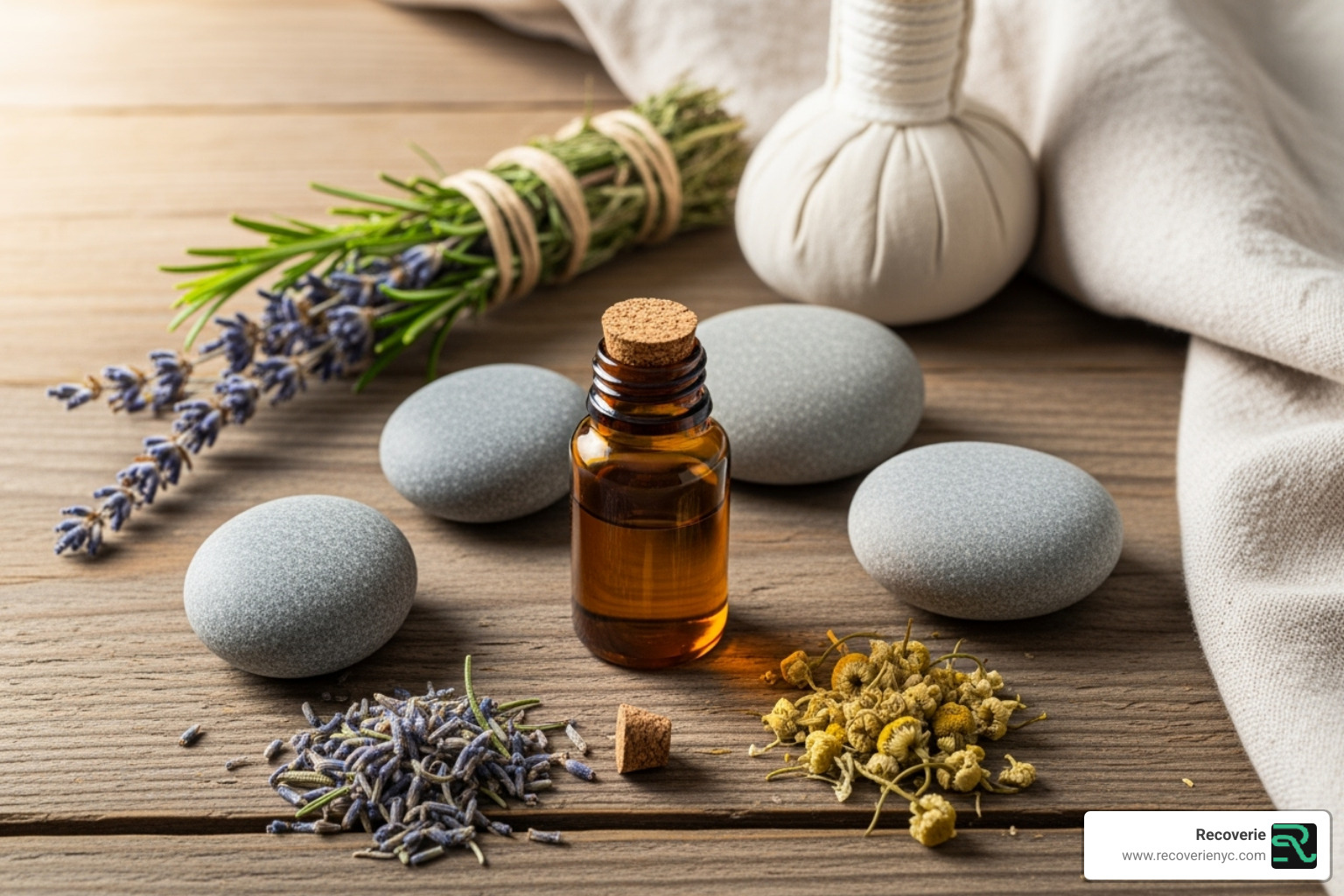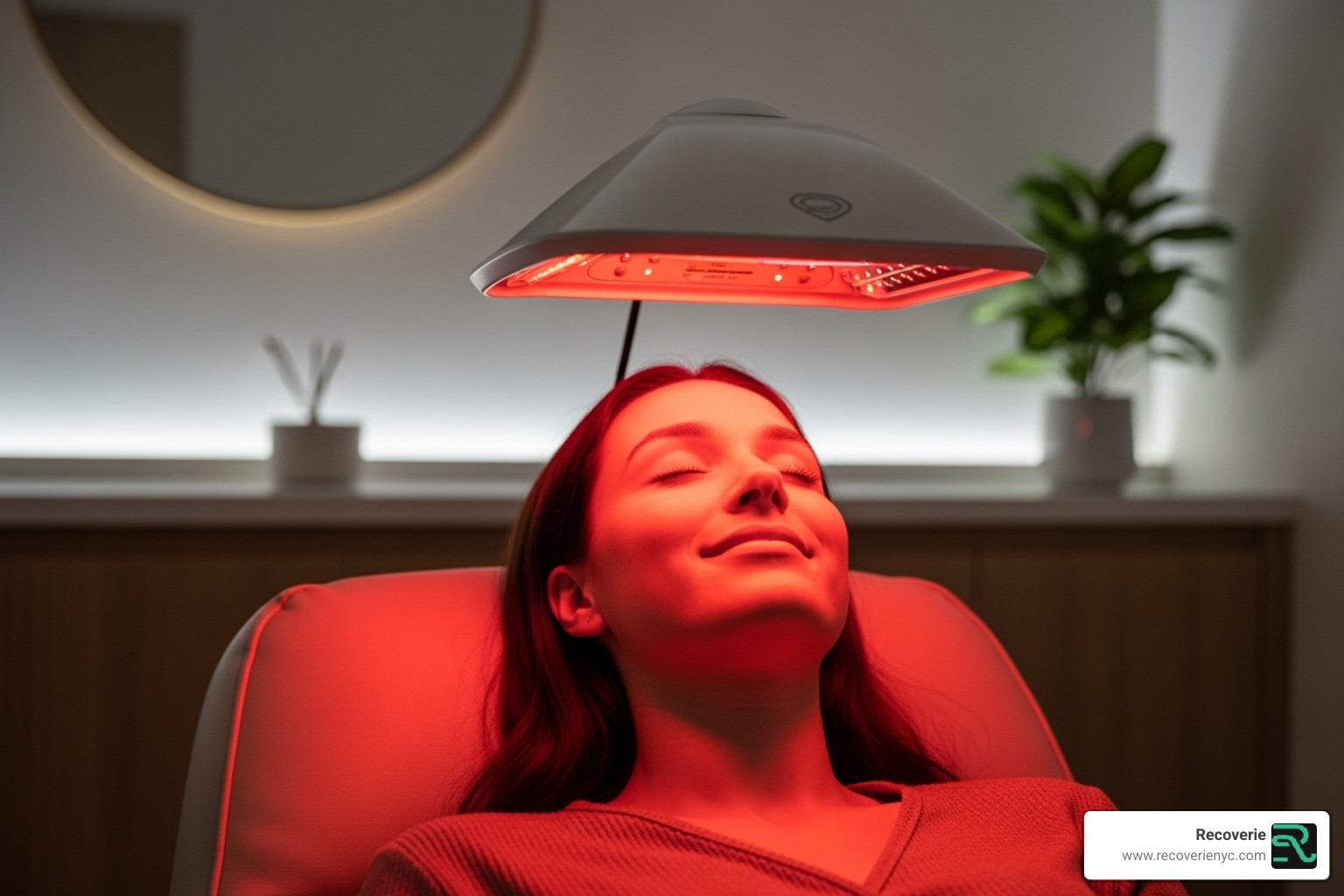Dehydration Treatment at Home: Safe and Effective Options
Dehydration happens when your body’s fluid levels fall below the needed threshold for normal function. Water makes up about 60% of your body weight and is vital to almost every physiological process.
When your body water is lost through sweating, vomiting, diarrhea, extreme heat exposure, or inadequate intake, the body struggles to maintain blood pressure, circulate oxygen and nutrients, and regulate body temperature.
Early signs and symptoms of dehydration include:
- Increased thirst and a dry mouth
- Low energy and fatigue that doesn’t improve with rest
- Headaches or difficulty concentrating
- Dark-colored urine or reduced urine output
- Sunken eyes or other visible signs of fluid loss (in severe cases)
Timely treatment focuses on replenishing fluids and restoring electrolyte balance so the body can recover.
Water and Oral Rehydration Therapy (ORT) at Home
While plain water is the most accessible fluid, it may not replace lost sodium salts and other electrolytes sufficiently. Oral rehydration therapy (ORT) is a safe and effective hydration treatment for mild to moderate dehydration.
Unlike plain water, which only replaces fluid, ORT uses specially balanced oral rehydration salts (ORS) that restore both fluids and electrolytes. These solutions improve electrolyte balance and help the body maintain healthy body fluid levels.
Commercial ORS packets are widely available in pharmacies and online. They are the gold standard for dehydration treatment. The World Health Organization (WHO) recommends them for diarrhea, vomiting, or fever. For children and older people, oral rehydration salts are especially effective in managing fluid loss safely.
If commercial solutions are unavailable, a simple homemade electrolyte solution can help in emergencies. A home-made recipe consists of:
- 1 liter (about 4 cups) of clean water
- 6 teaspoons of sugar
- ½ teaspoon of salt
While not as precise as medical-grade ORS, it provides basic electrolyte and fluid replacement. It’s important to measure carefully, as too much sugar can worsen diarrhea and too much salt can be harmful.
ORT is very helpful in cases of stomach flu and food poisoning, where fluid and electrolyte losses are high. In these cases, sip small amounts of the electrolyte solution often instead of drinking quickly. This prevents nausea and reduces the risk of vomiting. For children, use small spoons or syringes to give fluids slowly.
Although ORT is effective for most mild to moderate cases, it may not be enough for severe dehydration or when vomiting prevents fluids from staying down. In such cases, IV hydration therapy becomes necessary for rapid and reliable rehydration.
For vulnerable groups like:
- Young children and toddlers: Use oral rehydration salt solutions recommended by pediatricians. Breastfeeding or formula should continue if tolerated.
- Older adults: Reduced thirst perception requires proactive encouragement to drink fluids regularly. Monitor for confusion or weakness as signs of worsening dehydration.
- Individuals with chronic illness: Follow health provider advice for hydration and medication management.
Using Hydrating Foods and Drinks

Hydration does not come from fluids alone. Many fruits and vegetables naturally provide water, vitamins, and electrolytes. Fruits like watermelon, oranges, strawberries, and grapes offer water, vitamin C, and natural sugars. These help restore energy and maintain fluid balance, especially after exercise or illness.
Fruit juice, such as fresh orange juice, also restores fluids and nutrients.
Vegetables such as cucumbers, celery, and lettuce are also excellent because they contain high water content. Including these foods daily supports hydration in a simple, natural way.
Coconut water is another effective option. It contains natural potassium and electrolytes, which make it ideal for gentle rehydration.
Soups and broths are also valuable home remedies, especially during illness or recovery. They provide fluids, electrolytes, and warmth that aid comfort and healing.
For athletes or those in hot environments, electrolyte drinks and sports drinks can replace lost minerals and maintain performance.
However, avoid excess sugar drinks, as they can worsen dehydration. Many sports drinks contain excess sugar, which may worsen dehydration symptoms. Choosing low-sugar or balanced formulas is better for long-term hydration.
Soft drinks, alcohol, and energy drinks are not good options because they may increase fluid loss. Caffeinated beverages like coffee or tea also increase urine output, so they should always be paired with water.
Hydrating foods and drinks should complement regular water intake and oral rehydration solutions. When combined, these methods provide a balanced hydration plan that supports recovery, daily energy, and overall wellness.
IV Hydration Therapy at Home
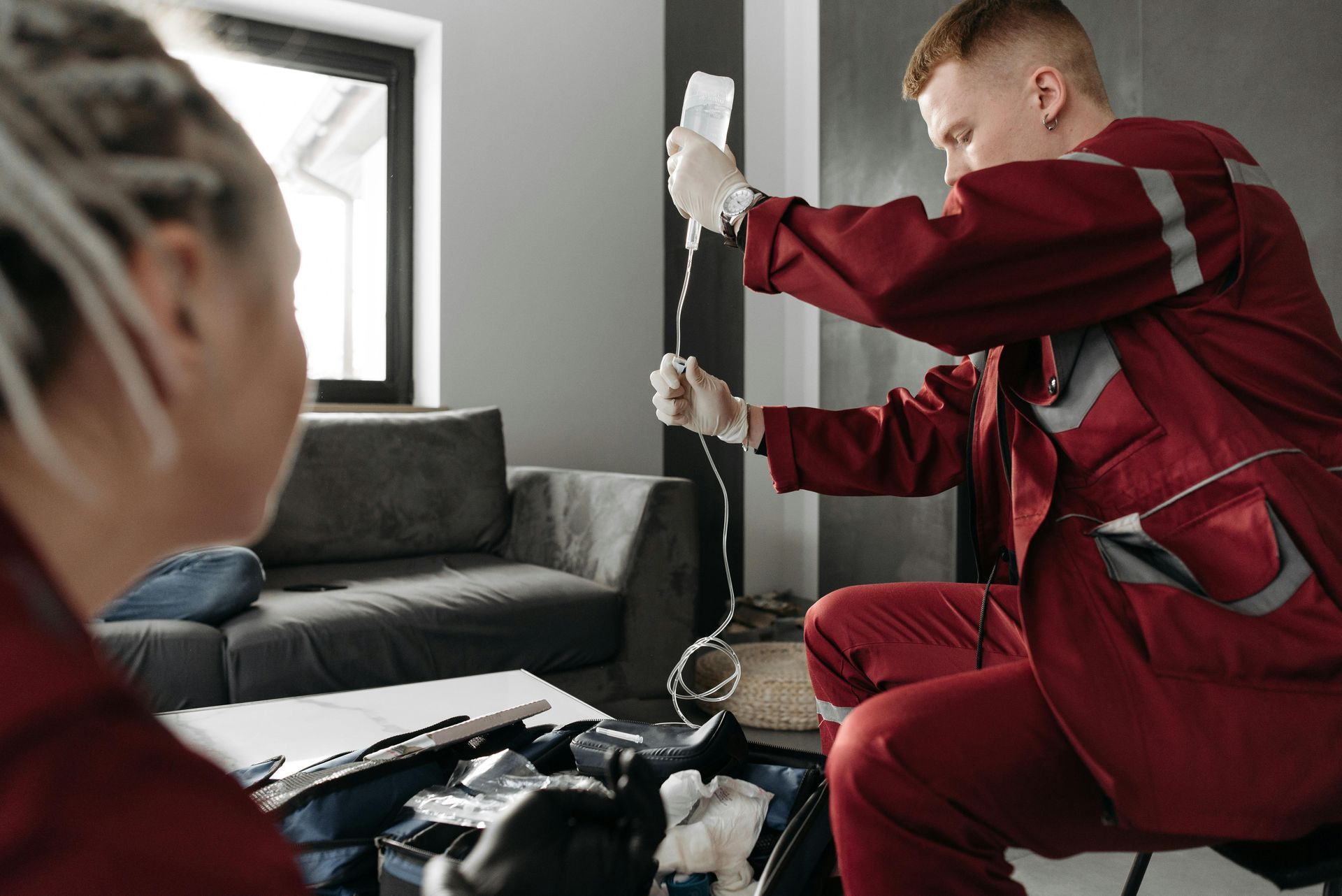
Sometimes dehydration is too severe for oral rehydration therapy. Frequent vomiting, food poisoning, or illness may prevent fluids from staying down. In these cases, IV fluids are the most effective option.
With IV therapy, fluids and electrolytes are delivered directly into the bloodstream. This bypasses the digestive system, making absorption faster and more reliable than oral fluids. Licensed medical professionals control the infusion rate, ensuring both safety and effectiveness.
Intravenous fluids can also include vitamins such as Vitamin B12 and Vitamin C for added recovery benefits. These nutrients restore body fluid balance, fight fatigue, and support energy production.
If you are in New York City, Recoverie NYC provides IV hydration therapy in a professional clinic setting. Our licensed providers tailor each treatment to your needs—whether you’re recovering from illness, managing fatigue, or restoring balance after fluid loss—so you can rehydrate safely and effectively.
Signs You Need to See a Doctor
Not all dehydration can be treated safely at home. Severe symptoms need professional care quickly. Seek medical attention if you notice confusion, rapid heartbeat, or extreme dizziness.
Inability to keep fluids down is another warning sign. This often means IV therapy is required. Very little urine output, dark urine, or fainting also indicate serious dehydration.
If dehydration follows chronic illness or continues despite oral fluids, call a family healthcare professional immediately. Prompt treatment prevents dangerous complications and supports recovery.
At Recoverie NYC, you don’t have to wait until symptoms become overwhelming. Our clinic offers expert intravenous drip therapy in a safe, comfortable environment—helping you restore balance and feel better faster.
